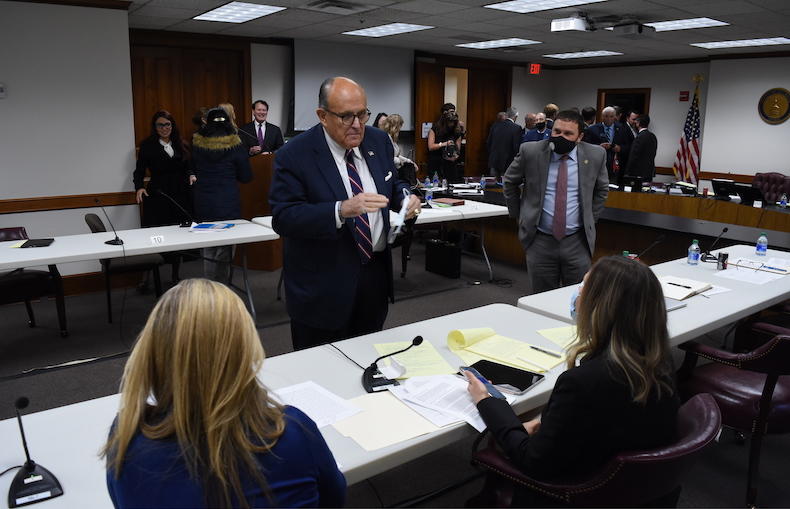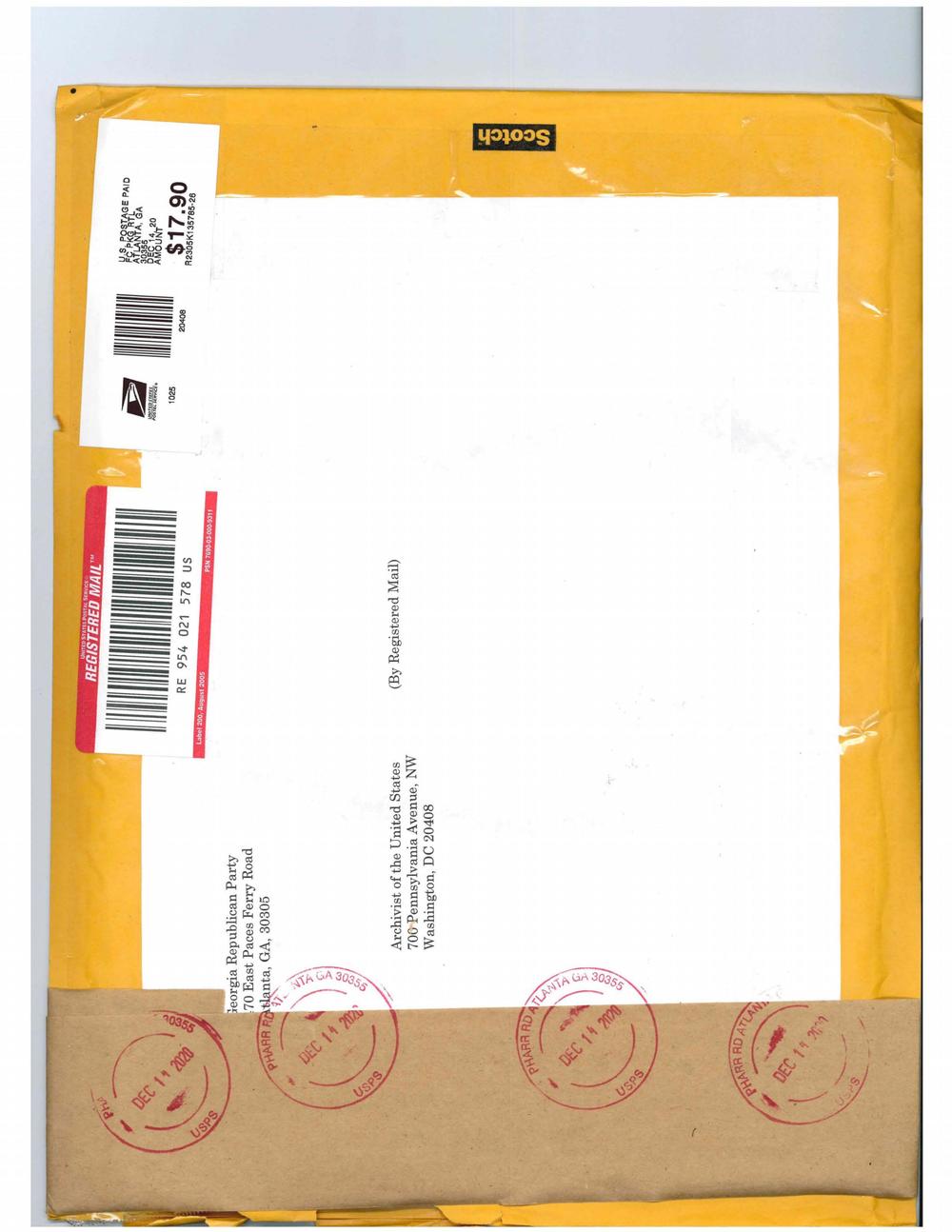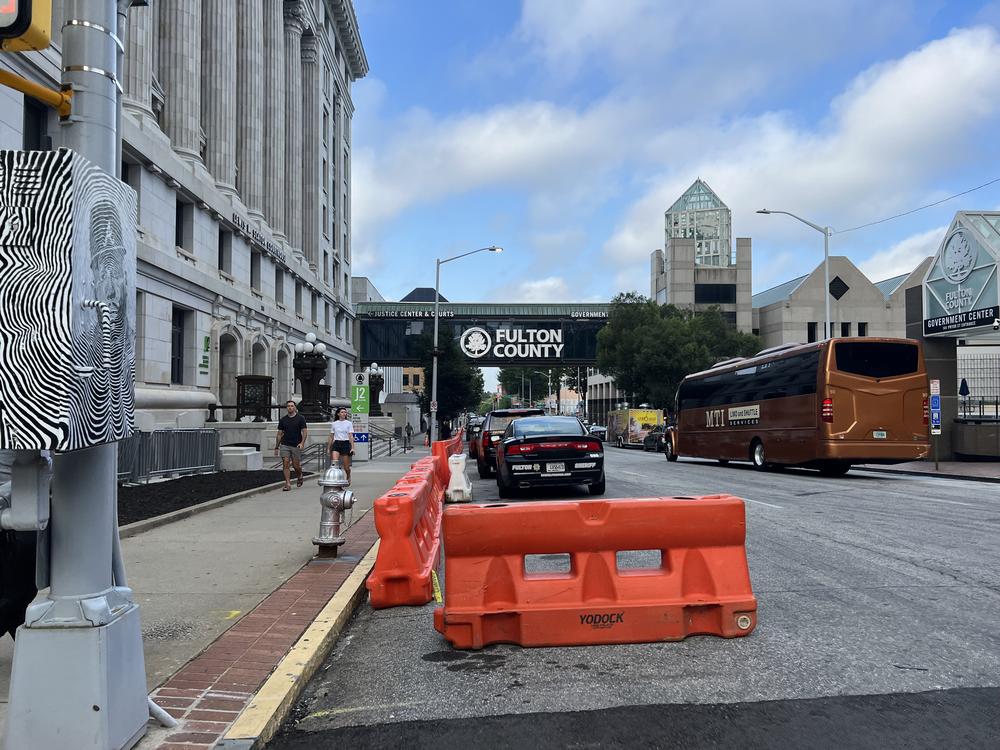
Caption
Rudy Giuliani talks with Georgia State Sens. Jen Jordan (D-Atlanta) and Elena Parent (D-Atlanta) during a break in a Georgia State Senate hearing Thursday, Dec. 3, 2020, during which Giuliani made numerous false claims of voting fraud in the 2020 presidential election.
Credit: Stephen Fowler / GPB News







